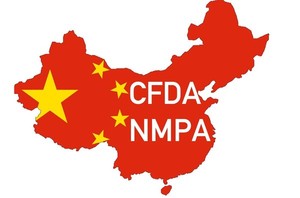China’s National Medical Products Administration (NMPA) has met with leaders from the Netherlands and Indonesia to discuss potential collaborations with these countries.
In China, the regulatory body for the approval of medicines, including biologicals, is the National Medical Products Administration (NMPA, 国家药品监督管理局), formerly the China Food and Drug Administration (CFDA: simplified Chinese: 国家食品药品监督管理局).
Following a meeting between the Chinese President Xi Jinping and Dutch Prime Minister Mark Rutte in Beijing in March 2024, Xu Jinghe, Deputy Commissioner of NMPA, met with Barbara Goezinne, Director General for curative care at the Netherlands’ Ministry of Health, Welfare and Sport. In addition, Xu sat down with a delegation led by Rizka Andalucia, Acting Director of the Indonesian Food and Drug Authority (BPOM).
In the meeting with the Dutch delegation, Goezinne emphasized that both China and the Netherlands encounter similar challenges in regulating drugs and medical devices. It was observed that the Netherlands is willing to strengthen communication with China at every level to collaboratively enhance the quality of these products. Both parties agreed to further advance their regulatory exchanges and cooperation to more effectively support public health.
After talks with the Indonesian delegation, the NMPA observed that the two sides engaged in thorough discussions on several topics, including the regulation of drugs and medical devices based on legal frameworks, quality management throughout the entire product lifecycle, the development of regulatory systems and capacities, the promotion of global regulatory convergence, harmonization and reliance, and involvement in executing the Global Harmonization Working Party's development strategy.
Many medicines regulatory agencies are progressively looking to expand mutual collaboration. The latest example is Japan’s Pharmaceuticals and Medical Devices Agency (PMDA) opening its Asia office in Thailand [1], with plans to open an office in the US by March 2025.
China’s technical guidance for the development and evaluation of copy biologicals was released in February 2015 [2].
In 2023, China saw a record 104 new drug approvals, up from 77 in 2022. This includes new chemical drugs, biological products, gene and cell therapies, vaccines, and traditional Chinese medicines. Chemical drugs led with 72 approvals, followed by biological products with 27, including two CAR-T products and two vaccines. Of the new drugs, 68 were imported, surpassing the number developed locally [3].
Related articles
Chinese biosimilars (copy biological) in European markets
Investment increasing pipeline of copy biologicals in China
References
1. GaBI Online - Generics and Biosimilars Initiative. Japan's PMDA expands influence with new office in Thailand[www.gabionline.net]. Mol, Belgium: Pro Pharma Communications International; [cited 2024 Sep 4]. Available from: www.gabionline.net/policies-legislation/japan-s-pmda-expands-influence-with-new-office-in-thailand
2. GaBI Online - Generics and Biosimilars Initiative. Chinese guidelines for copy biologicals [www.gabionline.net]. Mol, Belgium: Pro Pharma Communications International; [cited 2024 Sep 4]. Available from: www.gabionline.net/guidelines/Chinese-guidelines-for-copy-biologicals
3. Yu C, Wang X. New drug approvals in China reached record high in 2023. Around the Globe: China.
Permission granted to reproduce for personal and non-commercial use only. All other reproduction, copy or reprinting of all or part of any ‘Content’ found on this website is strictly prohibited without the prior consent of the publisher. Contact the publisher to obtain permission before redistributing.
Copyright – Unless otherwise stated all contents of this website are © 2024 Pro Pharma Communications International. All Rights Reserved.








 0
0











Post your comment